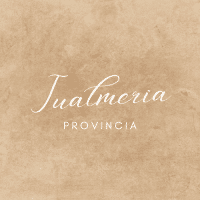How Does The Integration of Art Therapy in Addiction Recovery Programs Support Emotional Healing and Relapse Prevention?

The world of addiction therapy has seen an influx of innovative techniques that are proving to be paramount in the journey towards recovery. Among these, art therapy is becoming increasingly popular due to its capacity to offer a creative and engaging form of emotional expression. Individuals suffering from addiction often face an uphill battle against a myriad of complex emotions, and art therapy provides a unique and highly effective outlet for stress relief and emotional healing. By integrating arts such as music and painting into recovery programs, patients can benefit from a well-rounded treatment process that caters to their psychological wellbeing alongside their physical health.
Art Therapy: An Overview
Art therapy is a therapeutic approach that uses the creative process of making art to improve and enhance the physical, mental, and emotional well-being of individuals of all ages. It is a form of expressive therapy that uses the creative process of making art to improve a person’s physical, mental, and emotional well-being. It goes beyond traditional expressive methods by involving the creative process and resulting artwork to explore feelings, reconcile emotional conflicts, develop social skills, manage behavior, reduce stress, and increase self-esteem and self-awareness.
Dans le meme genre : Can The Use of Aerial Yoga Practices Improve Flexibility, Strength, and Mental Well-being?
Art therapy is not about becoming an artist or improving artistic abilities. It’s about finding a non-verbal way of expressing thoughts, feelings, and experiences in a therapeutic manner. This can be particularly beneficial for those in recovery from substance abuse, who may find it difficult to express or process their feelings verbally. The focus is on the process, not the outcome, which encourages individuals to explore their emotions in a different dimension.
The Integration of Art Therapy in Addiction Recovery Programs
In the treatment of addiction, recovery programs are constantly searching for effective ways to help individuals maintain long-term sobriety. Art therapy has emerged as a highly beneficial adjunct to traditional therapy methods, offering a creative and therapeutic process that can aid in emotional healing and relapse prevention.
A lire également : What Role Can Wearable Environmental Sensors Play in Personal Health Monitoring and Pollution Exposure Reduction?
Art therapy can be integrated into recovery programs in a variety of ways. This could involve painting, drawing, sculpture, music, and dance. A typical session might involve the individual creating art under the guidance of a trained therapist, who can then help them to explore the feelings and thoughts that emerge during the process. The artwork produced can serve as a tangible manifestation of the individual’s inner world, thereby providing insight into their emotional state and cognitive processes.
Some programs might also incorporate group art therapy sessions. In these, individuals can share their artwork and the emotions it represents, fostering a sense of community and mutual support.
Emotional Healing Through Art Therapy
One of the primary benefits of integrating art therapy into addiction recovery programs is the emotional healing it can facilitate. The process of creating art can be incredibly therapeutic, providing an outlet for the expression of complex emotions that might otherwise be difficult to articulate.
Art therapy can help individuals to process and express feelings of anger, sadness, fear, and regret, which can often accompany recovery from substance abuse. By expressing these emotions through art, individuals can begin to come to terms with their feelings and work towards emotional healing.
Creating art can also provide a sense of accomplishment, boosting self-esteem and contributing to a positive self-image. This can be particularly beneficial for those in recovery, who often struggle with feelings of worthlessness or self-doubt.
Art Therapy for Relapse Prevention
Another key benefit of integrating art therapy into addiction recovery programs is its role in relapse prevention. The process of creating art promotes mindfulness, a state of active, open attention to the present. This can help to combat cravings and reduce the risk of relapse.
Moreover, art therapy can serve as a coping mechanism, providing a healthy outlet for stress relief and emotional expression. This can be particularly beneficial during periods of high stress or emotional turbulence, which can be triggers for relapse in recovery from substance abuse.
Art therapy also encourages self-reflection and self-awareness, which can be crucial in recognizing and understanding the triggers and patterns of behavior associated with substance abuse. By gaining insight into these triggers, individuals can develop strategies to avoid or manage them, thereby reducing the likelihood of relapse.
In conclusion, the integration of art therapy into addiction recovery programs offers a multifaceted approach to treatment that addresses both the physical and emotional aspects of recovery. It is an innovative and effective method that can significantly support emotional healing and relapse prevention, making it a valuable tool in the journey towards recovery. However, it should be remembered that every individual’s journey is unique, and what works for one person might not work for another. Thus, it’s crucial to customize the recovery process to suit each individual’s needs and circumstances.
How Art Therapy Influences Mental Health in Addiction Recovery
Art therapy has an important influence on mental health during the recovery process. By engaging in the creative process, individuals are provided with a non-verbal platform to express their feelings, thus promoting emotional well-being. This therapy technique, when integrated into addiction treatment, plays a significant role in managing stress levels, fostering self-esteem, and enhancing self-awareness.
Art therapists encourage substance abuse patients to let their emotions flow freely through their artwork. As they sketch, paint, or mold, they expose hidden feelings and thoughts which they may find challenging to communicate verbally. This form of expression can trigger emotions associated with their addiction, allowing them to confront and handle these feelings in a secure, therapeutic environment.
Art therapy can also foster a sense of accomplishment. Completing a piece of artwork can elevate an individual’s self-esteem, combatting feelings of worthlessness or self-doubt, which are prevalent among those battling addiction. This therapy art also promotes mindfulness, a key factor in maintaining mental health balance. It helps individuals stay present, reducing the likelihood of negative thoughts associated with substance abuse seeping in.
Group Art Therapy in Addiction Treatment Centers
Addiction treatment centers are increasingly adopting group art therapy as part of their recovery programs. Group therapy, particularly when it involves a creative process like art, can cultivate a sense of community and mutual support among the participants.
In a typical session, participants create artworks and are encouraged to share their work with the group along with the emotions and experiences it represents. This not only provides a platform for emotional expression but also encourages empathy and understanding among group members.
Witnessing others’ struggles and triumphs through their artwork can create a sense of belonging and reduce feelings of isolation. Moreover, the shared experience can encourage individuals to remain committed to their recovery process, knowing they are not alone in their journey.
Group art therapy sessions also foster coping mechanisms that individuals can carry forward into their lives. They learn to use art as an outlet during periods of high stress or emotional turbulence, which are common triggers for relapse.
In Conclusion
Art therapy, when integrated into addiction recovery programs, provides a creative and engaging avenue for emotional expression and stress relief. Its benefits extend to promoting mental health, providing coping mechanisms, and preventing relapse, making it a powerful tool in addiction treatment.
However, while art therapy has a myriad of benefits, it’s essential to remember that addiction recovery is a highly individual process. Treatment programs should be tailored to the unique needs and circumstances of each person. Integrating a variety of therapy techniques, including art therapy, can create a holistic and well-rounded approach to addiction recovery, focusing on both the physical and emotional facets of the individual.
